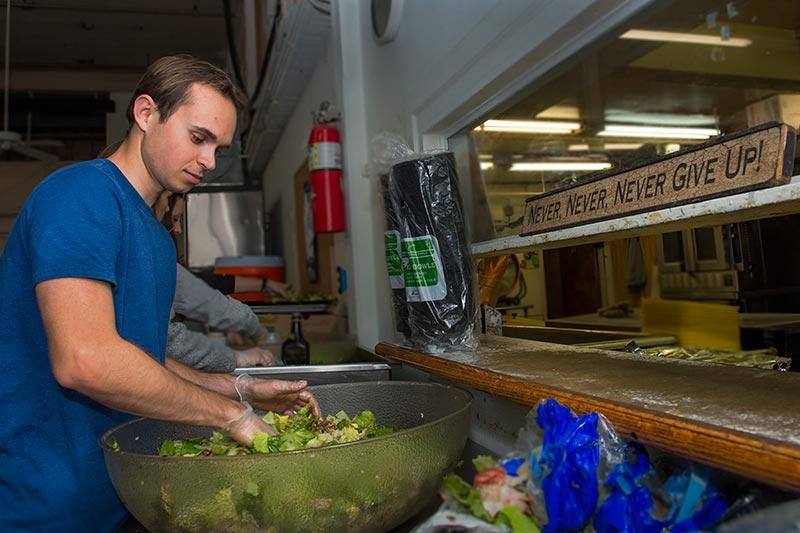Students find use for excess dining hall food
Have you ever wondered where all the excess food produced at the Bruff Commons dining hall goes at the end of the night? Thanks to the Tulane University chapter of the Food Recovery Network (FRN), food that used to end up in the trash is now collected and donated to the New Orleans Mission where it is served to those in need.
Five nights each week, students from FRN head to Bruff to collect, weigh and package leftover food, which is picked up by a mission representative the next morning.
“I was very surprised that hundreds of pounds of excess food was not being recovered,” said Tulane senior Will Martin of his initial observations in 2014. Recognizing an opportunity, Martin reached out to national representatives of FRN, who helped him start a chapter at Tulane.
“It is so valuable for everyone to see how the cycle of food recovery completes itself.”
Will Martin
After several months of logistical coordination, volunteer recruitment and meetings with Tulane Dining Services, Tulane FRN was recognized as an official organization and the food collection process began.
Tulane FRN chose to work with the New Orleans Mission in part given its legacy of providing food to hundreds of New Orleans residents in need. Martin believes they are “more than just a soup kitchen,” thanks to their programs that assist with medical care and rehabilitation. The mission’s organizational capacity to pick up the collected food five days a week has also been immensely helpful, as food transport would be a challenge for students.
FRN’s members have also recently started volunteering at the mission on weekends, in an effort to expand their community engagement initiatives.
“It is so valuable for everyone to see how the cycle of food recovery completes itself,” said Martin.
FRN also hopes to expand its collection to the food court in the LBC and the Orleans Room at Loyola University within the next year, especially as its membership grows. “We have become very efficient in our collection process,” said Martin, “and the measurements we take help Sodexo see what they are overproducing, therefore creating reductions in overall food waste.”
Hannah Dean is a senior majoring in Latin American studies and political science at Tulane University.

